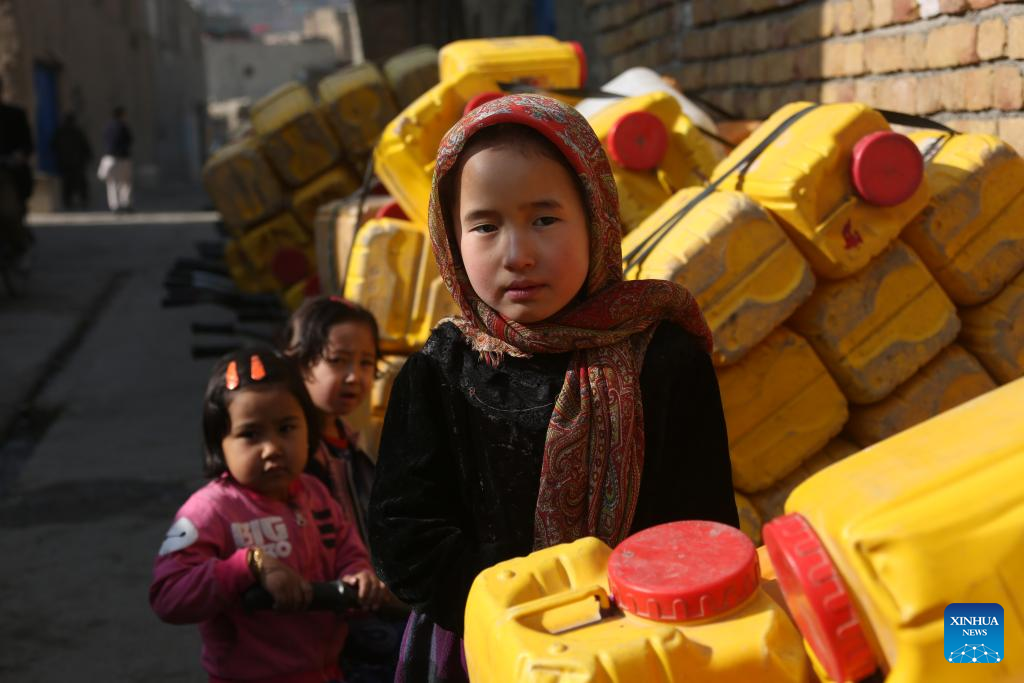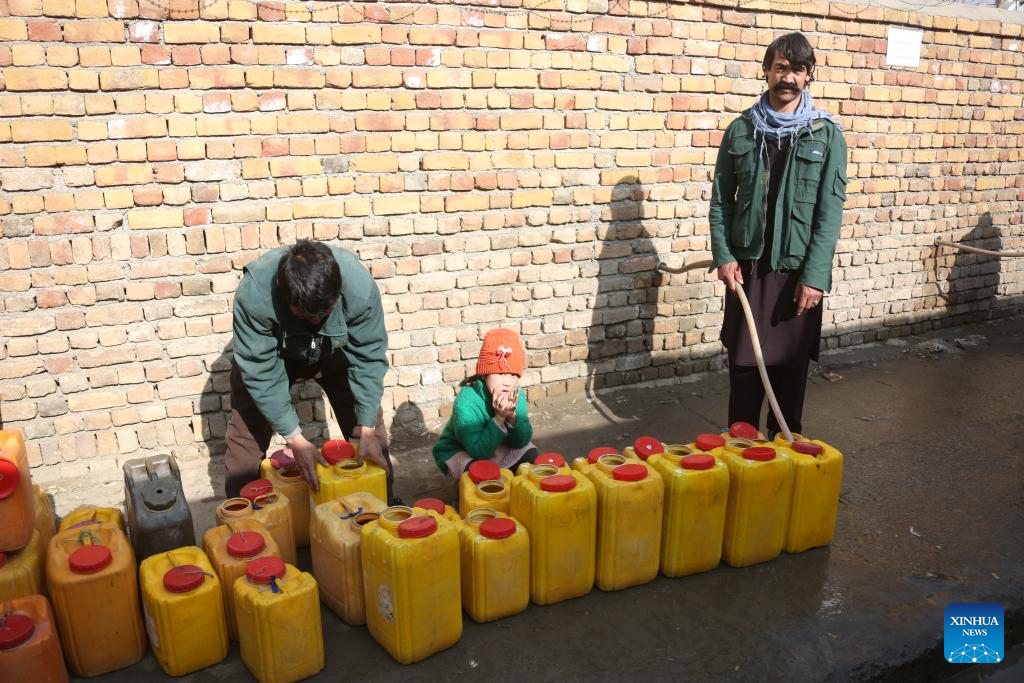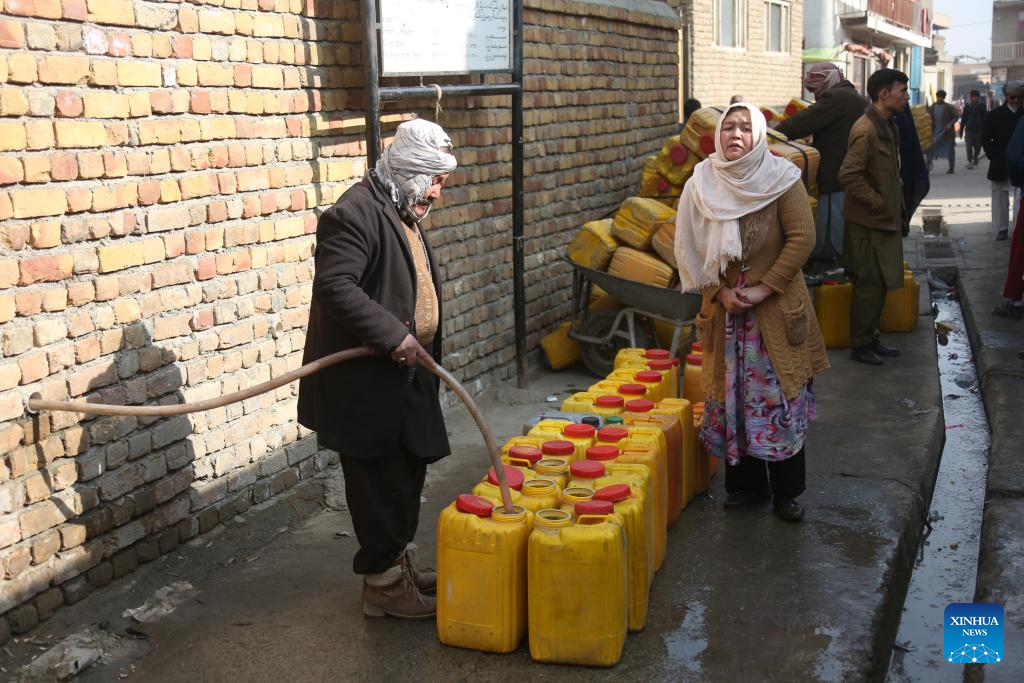
Children stand beside water barrels in Kabul, capital of Afghanistan, Jan. 11, 2024. (Photo by Saifurahman Safi/Xinhua)
by Abdul Haleem
KABUL, Jan. 18 (Xinhua) -- Standing in queue for hours to fetch water from the well of a local mosque on the western edge of Kabul, the capital of Afghanistan, Rajab Rezai whispered with anger that taking potable water requires hours to wait.
"There are 10 people in my family and I have to fill eight tins with water for use of drinking, cooking and taking ablution from this morning to next morning," Rezai told Xinhua.
Living in the Reg Ration area in Police District 13 of Kabul, the infuriated man muttered that taking water to wash clothes and take a bath is more difficult and requires more time to obtain.
"To fetch water for washing clothes or taking showers, we have to stay in line at midnight and wait until noon to have our turn," said aging Rezai.
Running a vegetable shop to support his family, the head of the 10-member family grumbled that he could not send his children to school, moaning the continued drought had added to his suffering.
More than 3,500 families obtain water for daily usage from the wells of four mosques, Rezai said, adding that 800 families fetch water from only one well in the Reg Ration area.
"Almost all the wells have been dried, and the flowing water in the water tap of houses, which had been running 24 hours a day in the past years, was also dried and the only source to fetch water nowadays is the wells of the mosques," another Kabul resident Karbalai said.
War-torn Afghanistan has been suffering from years of drought. Kabul, according to Afghans, also faces serious drought in the ongoing harsh winter, with rare rain or snowfall.
The water supply networks including the state-run one, according to Kabul residents, have failed to supply water to the houses of the residents regularly.
Echoing similar sentiment, Karbalai complained that the level of underground water has receded and almost all the wells have dried due to continued drought over the past few years.
"This is the problem -- all the wells have dried, the water tanks are empty and we have no water in our water tap," Karbalai said.
Nevertheless, Karbali said that the situation of water wells was relatively better last year compared to the current year.
Confirming the drought and the recession of water level in Afghanistan, spokesman for the Ministry of Energy and Water Qari Matihullah Abid said that many countries have been facing water shortages.
Putting the problem on climate change, the Afghan official said satellite photos had indicated a 33-percent water recession in 2023, causing aggravated drought in the region.
"As you know, Kabul is a densely populated city and we can say that all parts of Kabul are facing water shortages, particularly in Police Districts 11 and 13, where people are experiencing extreme water scarcity as underground water has badly receded," Abdi told Xinhua in his office.
Without disclosing the affected population, the official noted that the administration has been working to overcome the challenge.
"We can say that residents in major parts of Kabul city have hardly any access to clean water," Abid said.
"People may face internal migration if the drought continues. Before such a problem happens, it would be better if international aid agencies come and assist in implementing such humanitarian projects to overcome water shortages in Kabul city," the official added. ■

A man fills barrels with water in Kabul, capital of Afghanistan, Jan. 11, 2024. (Photo by Saifurahman Safi/Xinhua)

A man fills barrels with water in Kabul, capital of Afghanistan, Jan. 11, 2024. (Photo by Saifurahman Safi/Xinhua)



